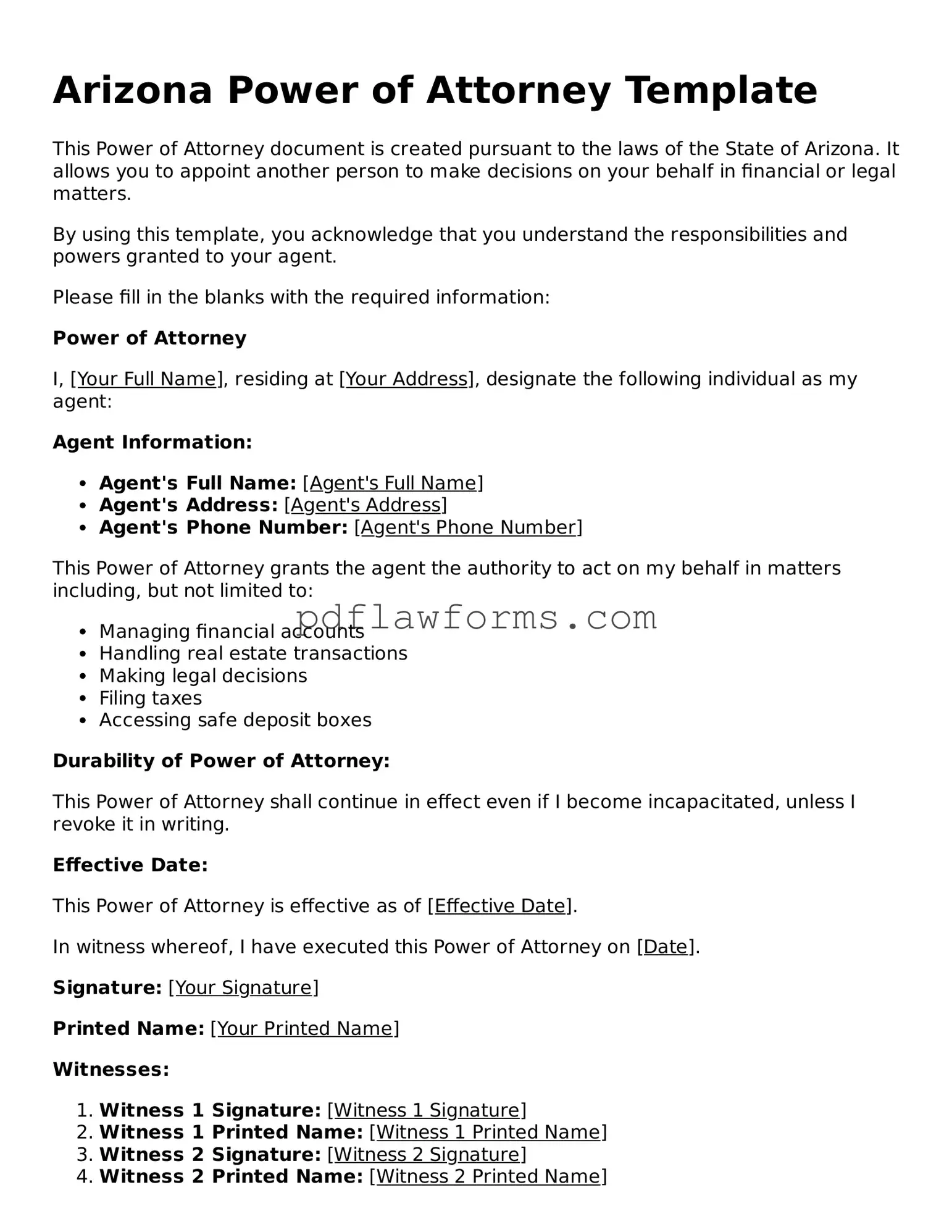When filling out the Arizona Power of Attorney form, individuals often overlook crucial details that can lead to complications. One common mistake is failing to specify the powers granted to the agent. It is essential to clearly outline what decisions the agent can make on behalf of the principal. Without this clarity, the agent may not have the authority to act when needed.
Another frequent error is neglecting to date the document. A Power of Attorney must be dated to establish when it becomes effective. Without a date, there may be confusion about the validity of the document, potentially leading to disputes or challenges in its enforcement.
People sometimes forget to sign the form in the presence of a notary. In Arizona, notarization is required for the Power of Attorney to be legally binding. Without a notarized signature, the document may be deemed invalid, rendering the agent unable to act on behalf of the principal.
Inaccurate identification of the principal and agent can also create issues. It is vital to provide full names and addresses to avoid any ambiguity. Misidentifying either party can lead to legal complications, especially if the document is contested.
Additionally, failing to include successor agents is a mistake that can have serious consequences. If the primary agent is unable or unwilling to serve, having a designated successor ensures that there is no lapse in decision-making authority. Without this provision, the principal may find themselves without representation when it is most needed.
Another oversight involves not reviewing the form thoroughly before submission. Errors in the form can lead to misunderstandings or misinterpretations of the principal's wishes. A careful review helps to catch any mistakes that could compromise the effectiveness of the Power of Attorney.
People often overlook the importance of discussing the Power of Attorney with the chosen agent. It is crucial for the agent to understand their responsibilities and the principal's wishes. A lack of communication can lead to actions that do not align with the principal’s intentions.
Some individuals mistakenly believe that the Power of Attorney remains effective indefinitely. In reality, it can be revoked at any time by the principal, as long as they are mentally competent. Failing to communicate any revocation can lead to confusion and potential legal disputes.
Another common mistake is not considering the implications of the Power of Attorney on other legal documents. For instance, if there is a will or a trust in place, the principal should ensure that the Power of Attorney aligns with those documents to avoid conflicting directives.
Lastly, individuals often neglect to keep copies of the completed Power of Attorney form. Having copies readily available can facilitate communication with financial institutions or healthcare providers when the agent needs to act. Without these copies, the agent may face unnecessary hurdles in executing their duties.

